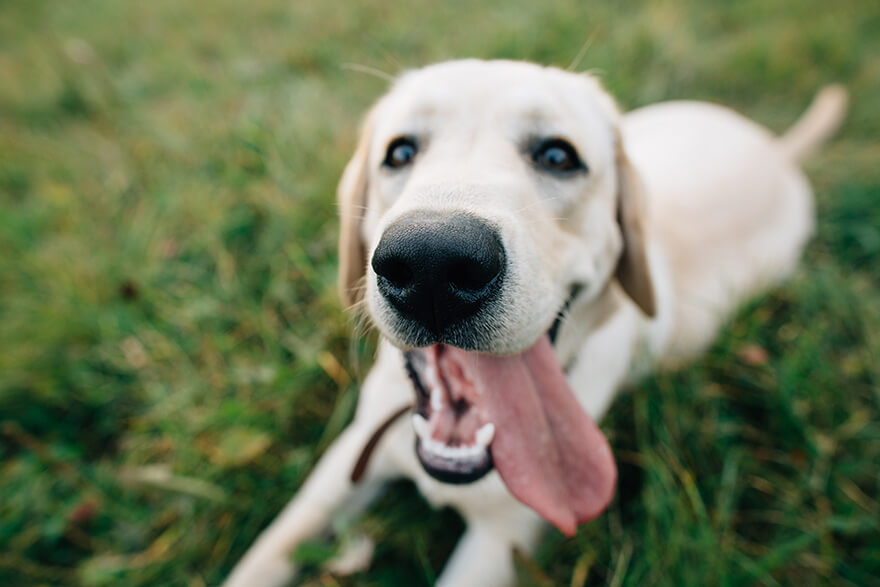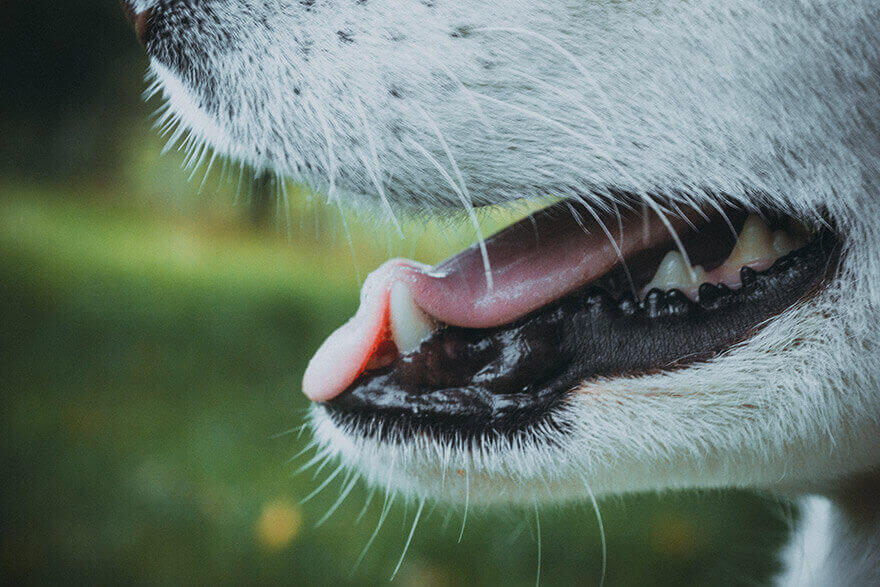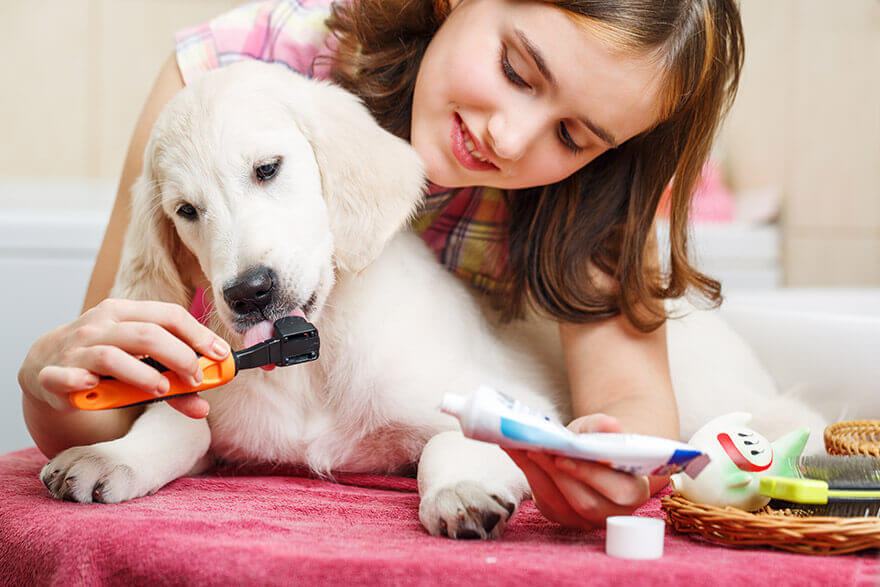
Why Does my Dog’s Breath Smell?
Halitosis is the name of this stinky condition and here are some of the common causes behind it.

Health & Science
04/03/2022
5 min read
Bad dog breath is a common condition that can make some pet parents hesitate when getting close to their dog. Halitosis is the name of this stinky condition and here are some of the common causes behind it
Behind the Breath
In fact, dogs should have neutral-smelling breath, and any bad odors are likely to be due to oral disease or underlying illness. In order to determine the cause of any smelly breath, your dog should have a thorough physical examination by a vet to determine the underlying cause of his bad breath. Here are some possible causes:
Dental diseases
The most common cause of bad breath in dogs is dental disease. In fact, by the time they reach 3 years of age, 80% of dogs are showing signs of dental disease.
Of course, you can’t expect dogs to brush their teeth twice a day as humans do, but as a caring parent, you could take care of your dog’s oral hygiene.
Just like humans, dogs tend to get cavities, gingivitis, infections, tooth fractures, and tooth root abscesses and infections, etc.
A puppy is born with all white teeth with a pink, shiny gum line. However, over time, many dog’s teeth begin to stain yellow or brown with tartar accumulation and the gums can become swollen and red as gingivitis develops. This is not a natural process of aging, but the result of bacteria and food building up on the teeth over time. If this plaque is not removed, dental disease will progress.
Smaller breeds are more prone to develop the dental disease with age, as periodontitis and plaque tend to accumulate on the upper and lower molars.

Other health conditions
Here are some of the more well-known conditions that were found connected with bad breath in dogs:
- Diabetes- can cause a buildup of ketones, a byproduct from the body breaking down fat instead of glucose, resulting in breath smelling sweet, fruity or like nail polish remover. Additionally, dog diabetes can increase the sugar content of saliva and is the best food for bad, odor-producing bacteria to thrive.
- Liver disease- can cause the breath to smell musty or like a dead animal. This is because the liver is no longer able to properly filter out toxins so stinky sulfur compounds, such as thiols, are released into the lungs.
- Kidney disease- can result in high urea levels in the body, causing the breath to smell like urine or fishy. Kidneys are also an important organ for filtering out toxins.
Foreign substances
Unfortunately, dogs eat plenty of non-food items which are undesirable and aren’t good for their bodies or their breath – bones, fishing hooks, feces, dead animals, and sticks all-cause foul breath in dogs.
Food
Dry food and wet food both have pros and cons when it comes to how they affect breath; some types of dry food can be better for teeth and help keep the mouth clean overall, but wet food has more water which is also good for a dog’s mouth.
If you’re concerned that it’s simply your dog’s food that is causing bad breath, you can work with your veterinarian to find the best option for your dog.
An imbalanced oral or gut microbiome
Many think the route from the mouth to the gut is a one-way street, but oral health and gut health are actually quite connected.
A microbiome can become imbalanced when ‘bad’ bacteria are present, overpower beneficial bacteria, or grow too numerous.
Dogs swallow a lot of saliva, which contains bacteria from the mouth, so it’s no surprise some of those bacteria end up living in the gut. Too many ‘bad’ bacteria in the mouth could end up growing in the gut, causing an imbalanced microbiome, which can also contribute to bad breath.
Make it a habit
Let’s lighten up the mood a bit. Almost anything is curable if prevented on time. So, first and foremost, take your dog for regular examinations to the vet – prevention is half the cure! Make this a habit just like you go for regular medical check-ups.
The next step, go to the store and purchase toothpaste and a toothbrush for your dog. It might be a little awkward initially, but once you get the hang of it, you’ll be an expert.

Then check into the variety of dental hygiene chews and gels offered. These help dogs maintain fresh breath, and good oral health and help fight the bacteria that destroy our gums.
Make sure you have your dog’s diet and nutrition under control. It is vital to feed your dog high-quality food to keep them away from all those weird things they eat like cat’s poop.



Get your pet insurance quote
Pet type
- Dog
- Cat
What is your pet's name?
Zip code




